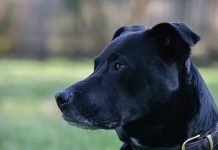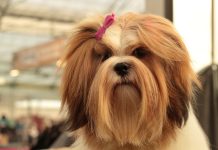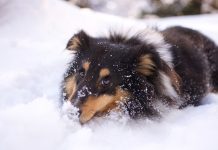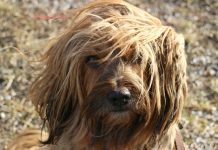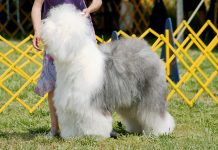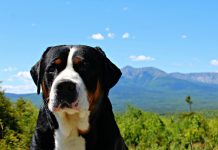History and Origins of the Basenji Breed

The Basenji is an ancient breed known for its unique characteristics and history. Here’s an overview of the history, origins, and physical characteristics of Basenjis:
History and Origins
- Ancient Origins: Basenjis are believed to be one of the oldest dog breeds, originating in Central Africa thousands of years ago. They were used by African hunters for tracking and driving game.
- Temple Dogs: Basenjis were highly revered in ancient Egypt and are depicted in Egyptian tombs and artwork. They were considered sacred temple dogs.
- Discovery in Africa: Basenjis were brought to Europe in the late 19th century, where they gained attention for their unique traits, including their distinctive yodel-like vocalization and clean, cat-like grooming habits.
- Introduction to Western Countries: Basenjis were officially introduced to Western countries in the early 20th century and quickly gained popularity as exotic and intelligent companions.
Physical Characteristics and Appearance
- Size: Basenjis are small to medium-sized dogs, standing around 16 to 17 inches (41 to 43 cm) at the shoulder and weighing between 22 to 24 pounds (10 to 11 kg).
- Muscular Build: They have a muscular, athletic build with a distinctive curled tail and erect ears.
- Short Coat: Basenjis have a short, dense coat that comes in various colors, including chestnut red, black, tricolor (black, white, and tan), and brindle. They have a smooth and glossy coat that requires minimal grooming.
- Wrinkled Forehead: Basenjis have a wrinkled forehead that gives them a unique expression. Their eyes are almond-shaped and dark.
- Tail: Basenjis have a tightly curled tail that sits over their back, giving them a distinctive appearance.
- Elegant Gait: They move with an elegant, graceful gait and are known for their agility and speed.
- Expression: Basenjis have a proud and alert expression, reflecting their confident and intelligent nature.
- Quiet and Clean: Basenjis are known for being relatively quiet compared to other breeds, and they groom themselves like cats, licking their fur to keep it clean.
Overall, Basenjis are a unique and ancient breed known for their hunting prowess, intelligence, and distinctive traits. They make loyal and affectionate companions for families and individuals who appreciate their independent yet affectionate nature. Basenjis thrive in environments where they receive mental stimulation, exercise, and companionship. Proper training and socialization are essential to harness their intelligence and prevent boredom-related behaviors.
Basenji Temperament and Personality Traits
Basenjis have a distinct temperament and personality that sets them apart from other dog breeds. Understanding their characteristics and meeting their training and socialization needs is essential for a harmonious relationship. Here are the key temperament traits and training considerations for Basenjis:
Temperament and Personality Traits
- Independent: Basenjis are known for their independent nature. They are not overly clingy or needy and may exhibit a cat-like aloofness at times. This independence can make them less eager to please in training compared to some other breeds.
- Intelligent: Basenjis are highly intelligent dogs. They are quick learners and can easily become bored with repetitive training. Engaging their minds with varied activities and challenges is essential.
- Curious: Basenjis are naturally curious and investigative. They love exploring their surroundings and are always on the lookout for interesting scents or sights.
- Alert and Watchful: Basenjis are excellent watchdogs. They are alert and will bark or alert their owners to any perceived threats or unusual activities.
- Active and Agile: Despite their small size, Basenjis are active and agile dogs. They enjoy physical activities like running, jumping, and playing. Regular exercise is important to keep them mentally and physically stimulated.
- Reserved with Strangers: Basenjis can be reserved or aloof with strangers, especially if not properly socialized from a young age. Early socialization is important to ensure they are comfortable around new people and situations.
- Strong Prey Drive: Basenjis are hunters at heart. They have a strong prey drive and may chase small animals, including cats or squirrels. They should be supervised around smaller pets.
- Clean and Grooming Habits: Basenjis are known for their fastidious grooming habits. They groom themselves like cats and are relatively odorless, making them a good choice for people with allergies.
Training and Socialization Needs
- Positive Reinforcement: Basenjis respond well to positive reinforcement training methods. Use rewards like treats, praise, and play to motivate them during training sessions.
- Early Socialization: Start socializing your Basenji puppy early and expose them to a variety of people, animals, sounds, and environments. This helps prevent shyness or fearfulness as they grow older.
- Consistent Training: Basenjis benefit from consistent and patient training. Keep training sessions short, varied, and interesting to hold their attention.
- Channel Energy: Provide plenty of physical and mental exercise to prevent boredom-related behaviors. Basenjis enjoy activities like agility, scent work, and interactive games.
- Be Patient and Understanding: Understand that Basenjis have an independent streak and may require extra patience during training. Use calm and positive reinforcement methods to build trust and cooperation.
- Ongoing Engagement: Basenjis thrive on mental stimulation and engagement. Provide them with interactive toys, puzzle games, and challenging activities to keep their minds sharp.
By understanding and meeting the unique temperament and training needs of Basenjis, you can build a strong bond with your dog and help them thrive in various environments. Consistent training, socialization, and mental stimulation are key to raising a well-adjusted and happy Basenji companion.
Health Considerations and Common Issues in Basenjis
Basenjis are generally a healthy and hardy breed, but like all dogs, they can be prone to certain health considerations and common issues. Understanding these health concerns and providing a suitable environment and lifestyle are essential for ensuring the well-being of your Basenji. Here are some key health considerations and lifestyle factors to keep in mind when living with a Basenji:
Health Considerations and Common Issues
- Fanconi Syndrome: Basenjis are predisposed to a hereditary kidney disorder called Fanconi syndrome. This condition affects the kidney’s ability to reabsorb certain nutrients and electrolytes, leading to excessive urination, dehydration, and electrolyte imbalances. Regular monitoring and testing for Fanconi syndrome are recommended, especially for breeding dogs.
- Hip Dysplasia: Although less common in Basenjis compared to larger breeds, hip dysplasia can occur. This is a genetic condition where the hip joint doesn’t develop properly, leading to arthritis and lameness. Responsible breeders screen their dogs for hip dysplasia to reduce the risk in offspring.
- Progressive Retinal Atrophy (PRA): Basenjis can be affected by PRA, a genetic eye disorder that leads to progressive vision loss and blindness. Regular eye exams by a veterinary ophthalmologist are important for early detection.
- Hypothyroidism: Basenjis may develop hypothyroidism, a condition where the thyroid gland doesn’t produce enough hormones. Symptoms include weight gain, lethargy, and skin issues. Treatment typically involves lifelong thyroid hormone supplementation.
- Allergies: Basenjis can be prone to skin allergies, including food allergies and environmental allergies (such as pollen or dust mites). Symptoms may include itching, skin infections, and ear infections. Identifying and avoiding allergens, along with appropriate veterinary care, can help manage allergies.
- Umbilical Hernias: Basenjis may be predisposed to umbilical hernias, which are defects in the abdominal wall near the umbilical cord. Most umbilical hernias are minor and may not require treatment unless they become problematic.
- Sensitive to Anesthesia: Basenjis are known to be sensitive to certain anesthesia drugs, and this should be considered if your dog requires surgery or dental procedures.
Suitable Environments and Lifestyle Considerations
- Indoor Living: Basenjis can adapt well to indoor living but thrive in environments where they have access to a secure outdoor area for exercise and play. They are not well-suited for outdoor living in cold climates due to their short coat and low body fat.
- Regular Exercise: Basenjis are active dogs that require daily exercise to stay healthy and happy. Provide them with opportunities for brisk walks, playtime, and mental stimulation through interactive toys and games.
- Secure Enclosures: Basenjis have a strong prey drive and may be prone to escaping or chasing small animals. Ensure your yard is securely fenced to prevent escapes and supervise them during off-leash activities.
- Positive Reinforcement Training: Use positive reinforcement training methods to engage and motivate your Basenji. They respond best to rewards like treats, praise, and play.
- Mental Stimulation: Basenjis are intelligent dogs that thrive on mental stimulation. Provide them with puzzle toys, scent work activities, and obedience training to keep their minds active.
- Regular Veterinary Care: Schedule regular veterinary check-ups, vaccinations, and preventive care to monitor your Basenji’s health and address any issues promptly.
- Grooming: Basenjis are relatively low-maintenance in terms of grooming due to their short coat. Regular brushing and occasional baths are usually sufficient to keep their coat clean and healthy.
By addressing these health considerations and providing a suitable environment and lifestyle, you can ensure that your Basenji remains healthy, happy, and well-adjusted throughout their life. Regular veterinary care, preventive measures, and responsible breeding practices are key to promoting the overall health and longevity of the breed.
Basenji Variations and Breeding Practices
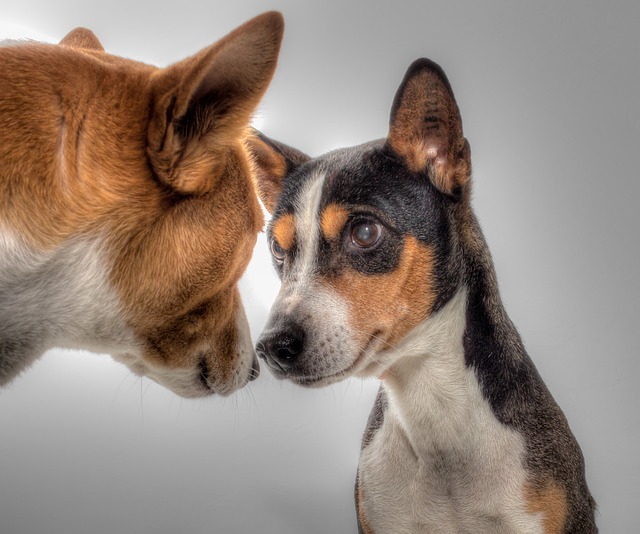
Basenjis are a unique breed with certain variations and breeding practices that are important to consider. Here’s an overview of Basenji variations and key aspects of responsible breeding practices:
Basenji Variations
- Color and Markings: Basenjis come in a variety of colors, including red, black, brindle, and tricolor (black, white, and tan). They may also have white markings on their chest, feet, and tail. Each color variation is recognized by breed standards.
- Size and Build: Basenjis are typically medium-sized dogs with a sleek and athletic build. While they have a standard size range (16-17 inches at the shoulder for males, slightly smaller for females), variations in size within this range may occur.
- Coat Type: Basenjis have a short, fine coat that requires minimal grooming. Some individuals may have a slightly longer or denser coat, but overall, the breed is known for its smooth and glossy appearance.
- Temperament and Behavior: While Basenjis share common temperament traits, individual variations in personality and behavior can occur. Some Basenjis may be more outgoing and sociable, while others may be more reserved and independent.
Breeding Practices
- Health Testing: Responsible Basenji breeders prioritize health testing to screen for genetic conditions that may affect the breed, such as Fanconi syndrome, hip dysplasia, progressive retinal atrophy (PRA), and thyroid disorders. Testing breeding dogs helps reduce the risk of passing on inherited health issues to offspring.
- Pedigree and Lineage: Established Basenji breeders maintain detailed pedigrees and lineage records to track the health, temperament, and conformation traits of their breeding stock. This information helps breeders make informed decisions when selecting breeding pairs.
- Conformation Standards: Basenji breeders adhere to established conformation standards set by kennel clubs and breed organizations. These standards specify ideal physical characteristics, including size, coat color, markings, and overall structure. Breeding decisions are made to improve breed conformation while maintaining health and temperament.
- Ethical Breeding Practices: Ethical Basenji breeders prioritize the well-being of the breed and individual dogs. They focus on responsible breeding practices, proper socialization, and early puppy development. They also provide lifetime support to puppy buyers and participate in breed clubs and activities.
- Avoiding Genetic Bottlenecks: Basenjis are a relatively rare breed with a limited gene pool. Responsible breeders work to avoid genetic bottlenecks by introducing genetic diversity through careful selection of breeding pairs and collaboration with other breeders.
- Breeder Reputation: When choosing a Basenji breeder, it’s important to research and select a reputable breeder who prioritizes health, temperament, and breed preservation. Responsible breeders are transparent about their practices, provide health guarantees, and encourage ongoing communication with puppy buyers.
By understanding Basenji variations and responsible breeding practices, prospective owners can make informed decisions when selecting a Basenji puppy and contribute to the preservation and welfare of this unique breed. Working with reputable breeders who prioritize health and ethical breeding practices is essential for promoting the long-term health and well-being of Basenjis.
50 Best Names with Meanings for Basenjis
Choosing a name for your Basenji can be a fun and meaningful process. Here’s a list of 50 best names with meanings that you might consider for your Basenji:
- Zuri – Swahili for “beautiful”
- Kito – Swahili for “precious”
- Simba – Swahili for “lion”
- Lulu – Swahili for “pearl”
- Mali – Swahili for “wealth”
- Jabari – Swahili for “brave”
- Nala – Swahili for “gift”
- Kali – Swahili for “fierce”
- Taji – Swahili for “crown”
- Jengo – Swahili for “building”
- Zola – African origin meaning “peaceful”
- Anaya – African origin meaning “caring”
- Biko – African origin meaning “born after twins”
- Safari – Swahili for “journey”
- Duma – Swahili for “cheetah”
- Aslan – Turkish for “lion”
- Nairobi – Capital city of Kenya
- Bantu – African ethnic group
- Asha – Swahili for “life”
- Kazi – Swahili for “work”
- Chui – Swahili for “leopard”
- Zahara – African origin meaning “flower”
- Sanaa – Swahili for “art”
- Makani – Hawaiian for “wind”
- Kioni – Hawaiian for “full of life”
- Kona – Hawaiian for “lady”
- Koa – Hawaiian for “warrior”
- Mana – Polynesian for “power”
- Kai – Hawaiian for “sea”
- Lani – Hawaiian for “sky”
- Milo – Hawaiian for “calm”
- Nani – Hawaiian for “beautiful”
- Onyx – Gemstone known for its black color
- Jasper – Gemstone known for its earthy colors
- Athena – Greek goddess of wisdom
- Apollo – Greek god of the sun
- Loki – Norse god of mischief
- Freya – Norse goddess of love and beauty
- Sable – Inspired by the Basenji’s coat color
- Echo – Greek mythological nymph
- Mira – Latin for “wonderful”
- Lumi – Finnish for “snow”
- Astra – Latin for “star”
- Athena – Greek goddess of wisdom
- Zephyr – Greek god of the west wind
- Rocco – German origin meaning “rest”
- Juno – Roman goddess of marriage
- Cyra – Persian origin meaning “throne”
- Asha – Sanskrit for “hope”
- Zorro – Spanish for “fox”
Choose a name that resonates with you and your Basenji’s personality. Whether you prefer a meaningful name from a specific culture or a unique name inspired by nature or mythology, there are many options to choose from. Have fun finding the perfect name for your beloved Basenji companion!

In conclusion, this comprehensive guide has provided a detailed overview of Basenji dogs, highlighting their unique characteristics and essential care considerations. Throughout our exploration, we’ve delved into the history, distinctive traits, and important aspects of owning a Basenji. Known for their intelligence, independence, and distinctive bark (or lack thereof), Basenjis make interesting and loyal companions for experienced dog owners.
Basenji dogs excel in activities such as agility, lure coursing, and obedience, showcasing their athleticism and keen instincts. As you embark on your journey with a Basenji, may you appreciate their remarkable qualities and form a strong bond with this ancient and fascinating breed, creating lasting companionship and joy together. Remember to provide them with regular exercise, mental stimulation, and proper training to ensure they thrive and remain happy companions in your life. With their unique personality and spirited nature, Basenji dogs are sure to bring excitement and companionship to your home.






